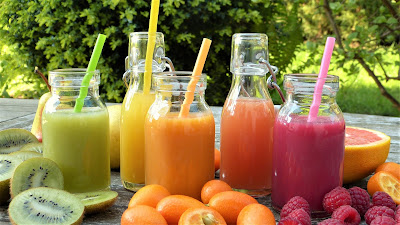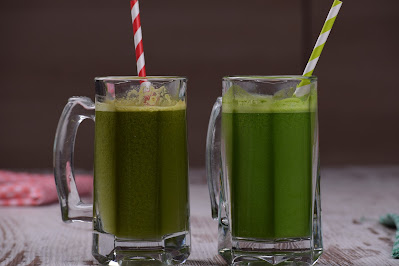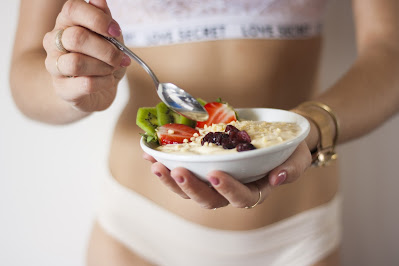
The DASH (Dietary Approaches to Stop Hypertension) diet is a well-known diet plan that has been developed to help lower blood pressure and improve overall health. It is a balanced and nutritious diet that emphasizes whole foods, fruits, vegetables, lean proteins, and low-fat dairy products while minimizing the intake of saturated and trans fats, added sugars, and sodium. Here are three meal examples that follow the DASH diet guidelines.
Breakfast: Greek Yogurt Parfait with Berries and Almonds
This breakfast is a delicious and nutritious way to start the day. Greek yogurt is a rich source of protein, while berries provide antioxidants and fiber. Almonds add healthy fats and a satisfying crunch.
Ingredients:
1 cup plain Greek yogurt
1/2 cup mixed berries (e.g., blueberries, raspberries, strawberries)
2 tablespoons chopped almonds
1 teaspoon honey
Instructions:
In a small bowl, mix together the Greek yogurt and honey.
In a separate bowl, mix together the berries and chopped almonds.
In a glass or bowl, layer the Greek yogurt mixture and the berry mixture.
Serve immediately and enjoy!
This meal is high in protein, fiber, and healthy fats. It is low in added sugars and sodium, making it a great option for those following the DASH diet.
Lunch: Grilled Chicken Salad with Quinoa and Veggies
This lunch is a complete source of protein, fiber, and complex carbohydrates. It is easy to prepare and can be customized with your favorite vegetables.
Ingredients:
4 ounces grilled chicken breast
1/2 cup cooked quinoa
1/2 cup mixed vegetables (e.g., bell peppers, cucumbers, carrots, tomatoes)
1 tablespoon olive oil
1 tablespoon balsamic vinegar
Salt and pepper, to taste
Instructions:
In a large bowl, mix together the cooked quinoa and mixed vegetables.
Add the grilled chicken breast to the bowl.
In a small bowl, whisk together the olive oil, balsamic vinegar, salt, and pepper.
Drizzle the dressing over the salad and toss to coat.
Serve immediately and enjoy!
This meal is low in saturated and trans fats and sodium, making it a great option for those following the DASH diet. The grilled chicken breast provides lean protein, while the quinoa and vegetables provide fiber and essential nutrients.
Dinner: Baked Salmon with Roasted Vegetables and Brown Rice
This dinner is a delicious and nutritious way to end the day. Salmon is a rich source of omega-3 fatty acids, while vegetables provide fiber and essential nutrients. Brown rice provides complex carbohydrates and fiber.
Ingredients:
4 ounces baked salmon
1 cup mixed roasted vegetables (e.g., broccoli, cauliflower, Brussels sprouts)
1/2 cup cooked brown rice
1 tablespoon olive oil
1 tablespoon lemon juice
Salt and pepper, to taste
Instructions:
Preheat the oven to 400°F.
Line a baking sheet with parchment paper.
Arrange the salmon on the baking sheet and season with salt and pepper.
Bake for 12-15 minutes or until the salmon is cooked through.
In a separate bowl, mix together the roasted vegetables, olive oil, and salt and pepper.
Roast the vegetables in the oven for 15-20 minutes or until they are tender and slightly browned.
Serve the baked salmon with the roasted vegetables and cooked brown rice.
Drizzle with lemon juice and enjoy!
This meal is high in protein, omega-3 fatty acids, fiber, and essential nutrients. It is low in saturated and trans fats and sodium, making it a great option for those following the DASH diet.
In conclusion, the DASH diet is a healthy and balanced diet plan that emphasizes whole foods, fruits, vegetables, lean proteins, and low-fat dairy products while minimizing the intake of saturated and trans fats, added sugars, and sodium. Following the DASH diet can help lower blood pressure, improve heart health, and promote overall health and well-being.
The meal examples provided above are just a few examples of the many delicious and nutritious meals that can be incorporated into a DASH diet plan. It is important to consult a healthcare professional or registered dietitian before making any significant dietary changes to ensure proper nutrient intake and to address any individual health concerns. By following the DASH diet guidelines and incorporating a variety of nutrient-dense foods, it is possible to achieve optimal health and well-being.
Prefer the dietary way to weight loss, you may find this useful... Click Here to Access.




